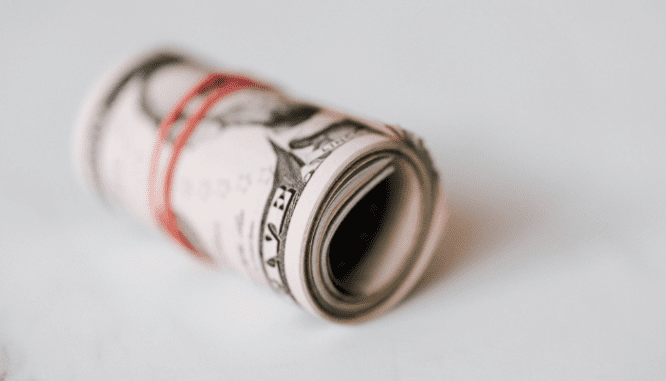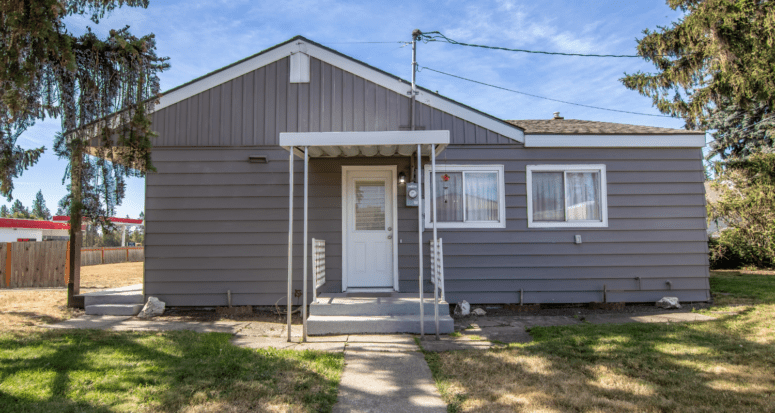14 Plans to Save Money for a House (One or More Will Work For You!)
- Published on
- 5 min read
-
 Dena Landon Contributing AuthorClose
Dena Landon Contributing AuthorClose Dena Landon Contributing Author
Dena Landon Contributing AuthorDena Landon is a writer with over 10 years of experience and has had bylines appear in The Washington Post, Salon, Good Housekeeping and more. A homeowner and real estate investor herself, Dena's bought and sold four homes, worked in property management for other investors, and has written over 200 articles on real estate.
When it comes to buying a home, the down payment is often the largest hurdle. Do you need to put 5% down? Or 10%, or more? Figuring out how much to save can get you started, but you’ll also need to figure out how to save. Which means you need to start thinking about plans to save money for a house … right about now.
Cinthia Ane’ McGreevy is an experienced agent in Florida who works with 80% more single-family homes than the average agent in her area. In her years as an agent, she thinks the best advice is for potential homebuyers to “create a monthly budget and really stick to it; that way you can put money aside.”
If you’re not great at saving each month, some of our tips will help you get on track. There’s no one-size-fits-all approach to saving money for a house, but with a bit of trial and error, you’ll be able to find something that works for you.
Here’s how you can put your plans to save money for a house into action.

1. Downsize your house right now
Are you renting a 2,000-square-foot luxury apartment? The bells and whistles may be nice, but your monthly rent payment could hurt your ability to save for a house. Most financial experts advise people to keep their monthly housing costs at less than 30% of their pre-tax income.
Consider moving to a smaller place, which will likely include lower utility payments. Bonus: Find a place that’s closer to work, saving you money on your commute.
Once you downsize, be disciplined about saving the money that used to go to rent into the savings account you’ve designated for your down payment.
2. Rent some space out
Downsizing is easier said than done if you have a lease that you can’t break. But if you have a spare bedroom, you can always think about renting it out. Roommates may come with their own problems, but it’s only temporary until you can buy your own place.
In some cities, a parking space is valuable in its own right. If you’ve got an extra spot in your driveway, or would be willing to park on the street, listing it on Craigslist or Nextdoor could bring in several hundred dollars per month.
Even an extra space to set up and work during the day could be worth exploring in this day and age. Maybe your landlord doesn’t allow sublets or roommates, but you could get around this by renting out your space during the day to someone who needs a home office.
3. Make it happen automatically
If you struggle with saving money out of your paycheck, or spend everything in your checking account, try setting up an automatic savings plan.
Many payroll companies will allow you to split your direct deposit between a checking and savings account. Or, you can set it up with your bank to automatically shift your money from one account to another after you get paid. Automatically withdrawing or diverting funds into an investment or savings account makes it easier to reach your savings goals.
If you still find yourself transferring money back into checking, or making withdrawals from savings, Ane’ McGreevy advises taking it a step further.
“Open and make deposits into a savings account at a different bank — don’t have checks, don’t have an ATM card; have it sitting there where it’s a little bit more complicated to get it out so that it’s safe there,” she suggests.
She does this herself, automatically diverting money from her main bank account to the other bank. Having to drive to the branch to take the money out keeps her from spending frivolously.
Technology has made saving a snap in other ways, too. There are numerous apps that round up purchases to a whole dollar and then put the difference in an account, or that save small amounts daily.
Chime is one app that rounds up purchases, and they give you a 10% reward on top of your savings, up to $500 a year. Qapital gives you more control over your savings — you decide what triggers the deposit, and they move the money into your savings account.
One neat perk is that you can join forces and save with friends and family towards the same goal. If you bank with Bank of America, enroll in their “Keep the Change” program, which rounds up debit card purchases and transfers the difference to savings.

4. Stash your windfalls
Any extra money — birthday gifts, bonuses at work, tax refunds, etc. — goes into the house savings pot.
Plan on skipping the big splurges like a new TV or couch — look at it this way, you won’t have to deal with the hassle of moving them when you finally close on your new home!
5. Press pause on retirement savings
If you’ve been saving for retirement, think about pausing or reducing your contributions. For many people, their home is a part of their retirement plan. The equity it builds over the years can fund your golden years. And buying at a younger age gives your home more time to grow in value.
If you do cut or stop contributing to your 401(k) or other retirement account, make sure you don’t spend that money. If you were contributing 4% of your paycheck, consider following the above advice and just automatically redirecting that 4% to a savings account.
Tara Alderete, Director of Enterprise Learning at Money Management International, a non-profit which provides financial counseling and education, has a word of caution about this approach. “The time value of money is a big consideration when you’re saving for a long-term goal like retirement,” she says. “Ask yourself: When I look at this big-picture, what’s going to yield the best result over time?” If possible, try to save simultaneously for retirement and a home.
Another caveat — if your employer matches your savings, think long and hard about this plan, and seek out alternatives if possible. You’d essentially be giving up free money, so try to keep depositing up to the match amount!
6. Borrow from retirement savings
Most 401(k) plans allow you to take out a loan against your retirement fund specifically to contribute towards a down payment. These loans have low interest rates, and you won’t incur penalties for early withdrawals as long as you remain employed at the company.
The amount you can borrow is capped at a percentage of the balance, but you could already have several thousand dollars of your down payment available to you.
If you lose your job or leave the company, you will have to repay the loan or face tax penalties. After you close on your house, it’s a good idea to make repaying the loan a priority.

7. Take a hard look at your food expenditures
This is one of the biggest opportunities to save money — learn how to cook!
Eating out can be a significant expense. Pack a lunch for the office, and cut back on alcohol.
And don’t just cook: plan your menus. Alderete says that organization is key to sticking to a food budget.
“Sit down, make a menu of items you want to cook this week and the ingredients you’ll need, make a grocery list and stick to it,” she advises. Cutting back on expensive meats and pre-made items can save you even more money.
Worried about your social life? Try organizing cooking parties with your friends, where you all buy the ingredients and learn how to make sushi together. Or plan events that don’t revolve around eating out at a restaurant or ordering takeout.
8. Think (and cut) big
Putting together a down payment for a house may require some short-term sacrifices. Think about scaling back on vacation plans, or visiting family and staying in a spare bedroom. Downsize your luxury vehicle for a serviceable but cheaper model with a lower monthly payment, or sell your car and bike or walk to work.
Put off any major purchases while saving for a house. As a bonus, avoiding taking on new debt will help you maintain your credit score.
9. Think (and cut) small
Deciding to stay home instead of heading to the beach could save you a couple of thousand dollars in airfare, car rental, and a hotel — fast gratification when you see the bump in your down payment savings account. But don’t forget about the small stuff.
How many streaming services do you subscribe to, and do you really watch them all? Get a library card instead of buying new books. Make your own coffee at home and skip the $5 latte. Buy some exercise equipment and work out at home instead of paying for a monthly gym membership.
Ane’ McGreevy advises writing every item down. “It’s amazing how much the little items can add up,” she says. Cutting out coffee and the gym could save you $160 a month!

10. Eliminate your expensive bad habits
Smoking and excessive drinking aren’t just bad for your health — they’re also bad for your finances. Their habit costs smokers in the United States an average of $1,700 to $3,000 a year, depending on their state’s taxes. The average drinker in each state spends anywhere from $57,000 to more than $121,000 on alcohol in their lifetime.
Avoiding gambling or card games with friends is another way to put free money back in your account. Even $100 every week at the casino adds up quickly!
11. Negotiate a raise
Negotiating a raise can be tricky, but if it’s time for your performance review, use it to request a pay bump. Before meeting with your boss or human resources, put together a list of your accomplishments. Document your case, and use strong evidence to back up claims such as “I’ve been a top performer.”
If you do get a raise, don’t spend it. Divert the difference between your old paycheck and your new amount into savings.
12. Find a side hustle
A side hustle can be a great way to stash some extra cash. To determine the best side hustle for you, think about your hobbies and interests, demand in your area, and how much free time you have.
Drive delivery or sign up for one of the many rideshare apps. Offer baby-sitting services to friends and family, or turn your hobby into cash on Etsy. Sign up to be a dog walker or pet sitter.
While it’s not easy to work two jobs, it’s only temporary. And it could get you into your dream home even sooner!
13. Refinance current loans
Existing debt won’t prevent you from qualifying for a mortgage, but it could make it harder to save. A high interest rate or large monthly payments will reduce the amount you are able to save each month.
If you have a car loan or student loans, you could look into refinancing them to pay less each month. Sometimes you can reduce your monthly payment by extending your repayment term. You can also bundle any credit card debt onto a low-interest-rate plan.
Reducing your debt service helps you reach your goal of homeownership sooner.

14. Raise some funds
Consider asking friends or family for money. Your parents or grandparents might be willing to give you an advance against your inheritance, or to extend a private loan. If you normally exchange gifts at holidays and birthdays with friends, ask if they’d be willing to just give cash.
What if you’re getting discouraged? The sum of money needed for a down payment can look like a ridiculously large amount, or the process could be going slower than you’d like. Alderete’s best advice is to “Start small, look at your milestones, and let your momentum build.” A little bit of momentum, even if it’s just seeing a hundred dollars a month go into your savings, can keep you moving forward.
You can follow as many of these tips as you’d like, depending on how aggressive you make your savings goal — whether you want to buy in a year or in three. And if you’re looking for more ideas, download HomeLight’s Guide to Save Up for a House. Now go buy yourself a piggy bank. (But don’t spend too much on it!)
Header Image Source: (Clayton Bunn / Pexels)
